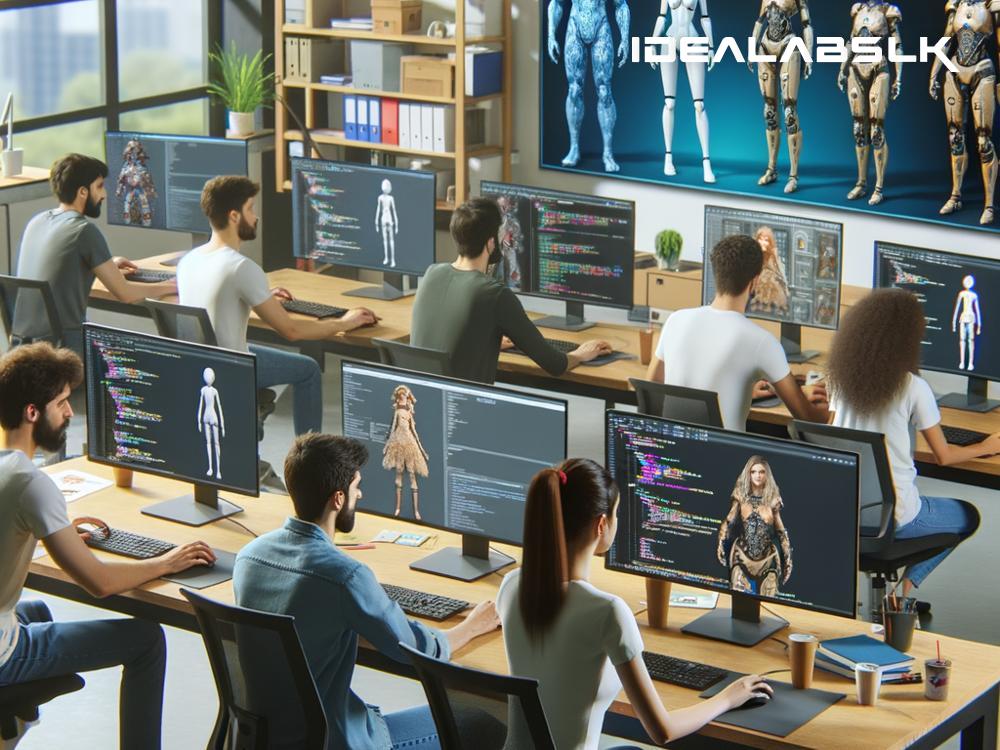Demystifying Machine Learning: Revolutionizing Video Game Development
In the gaming world, the buzz about machine learning (ML) is getting louder by the day, and for good reason. This groundbreaking technology is reshaping video game development, creating experiences that are more immersive, intelligent, and engaging than ever before. But how does machine learning work its magic in the realm of video games? Let’s break it down into simple English.
The Basics of Machine Learning
First off, machine learning is a subset of artificial intelligence (AI) that focuses on the ability of machines to learn from data and improve over time, rather than being explicitly programmed to do specific tasks. Imagine giving a computer the task of identifying cats in pictures. Instead of telling the computer what a cat looks like, you show it thousands of pictures, some with cats and some without. Over time, the computer identifies patterns and characteristics that define what a cat looks like and gets better at recognizing cats in new pictures. That's machine learning in a nutshell.
Machine Learning in Video Game Development
Now, let's translate this into video game development. The application of machine learning can be seen in several aspects, creating games that are smarter, more realistic, and personalized.
1. Smarter Non-Playable Characters (NPCs)
One of the most exciting applications is the development of smarter NPCs. Traditionally, NPCs followed a set of pre-programmed behaviors. With ML, these characters can learn and adapt based on the player's actions, making them more unpredictable and realistic. Imagine a stealth game where the guards learn from your tactics and start anticipating your moves, forcing you to change strategies continually.
2. Dynamic Game Worlds
Machine learning can also create dynamic game environments that react to the player's actions. For instance, in a survival game, the ecosystem could adapt based on how you interact with the flora and fauna. Hunt too much of a particular species, and it might become extinct, affecting the food chain and your survival strategies.
3. Personalized Gaming Experiences
Every gamer is unique, and machine learning helps developers cater to that individuality. By analyzing how you play, the game can adjust difficulty levels, suggest content that matches your style, or even alter storylines in real-time to keep you engaged.
4. Procedural Content Generation
Creating vast game worlds is resource-intensive. Machine learning can assist in generating content procedurally, meaning it can create landscapes, dungeons, or even entire worlds on-the-fly based on certain rules. This not only saves development time but also ensures that players have unique experiences each time they play.
5. Improved Game Testing
Game testing is a crucial but time-consuming phase of development. Machine learning models can automate the detection of bugs or glitches by learning from previous iterations, significantly speeding up the process and improving game quality.
How Does It All Work?
The process starts with data collection. Every interaction, decision, or movement a player makes can be data for the ML models. This data is then fed into algorithms that learn from it and make predictions or decisions. For example, if a player tends to use stealth in combat, the game might adapt to offer more stealth-based missions or challenges.
Developers also use what's called reinforcement learning, a type of machine learning where an algorithm learns to make decisions by performing actions and receiving rewards or penalties. This is akin to training a pet with treats. In game development, this means NPCs can learn over time what actions are beneficial (rewarded) and which are not (penalized), evolving their behavior in the process.
The Future Is Now
The integration of machine learning in video game development is still in its infancy, but the potential is immense. It promises not only to make games more engaging and personalized but also to streamline the development process, making it more efficient.
In essence, machine learning is set to redefine our gaming experiences, making them richer, more immersive, and, most importantly, tailored to each player's unique preferences and play styles. As technology continues to evolve, we can only imagine the kinds of incredible gaming adventures that lay on the horizon. So the next time you marvel at a particularly clever NPC or a game that seems to understand your preferences, there's a good chance machine learning is working behind the scenes, making it all possible.

